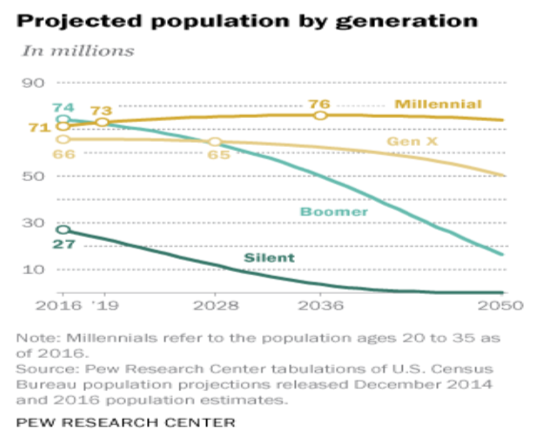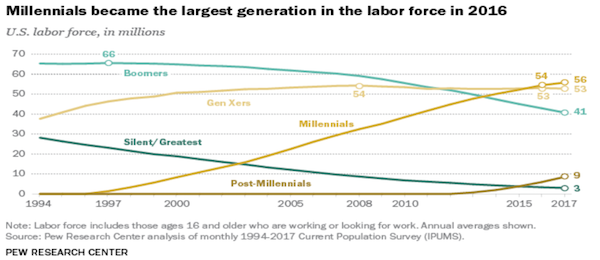According to a lot of information from Pew Research over the last five years, millennials are about to become the largest population group in the US, and possibly the biggest the country has ever had. Their traits and behaviors often confuse older generations, who sometimes find them strange or hard to understand. It’s not uncommon for different generations to feel this way. Every new group appears as if out of nowhere, bringing new values, ideas, and behaviors that seem to challenge or annoy those who came before.
I’m a Gen Xer—born between 1965 and 1979—and there are about 69 million of us in the US. My office mate, on the other hand, is a millennial born between 1980 and 1996, and it’s been an interesting experience spending time with him each day, working on projects and sharing ideas. Through this, I learned a few things that have been helpful to me, all focused on the idea that millennials aren’t as different as some might think.
What’s the Deal with Millennials?
My colleague is part of a cohort representing roughly 73 million people, a group that is expected to overtake boomers (people born between 1946 and 1964) this year. (Still other estimates put the millennial population much higher at some 80 million).

Millennials represent nearly one-fourth of the total population and the combined annual buying power of $200 billion. They’re also the largest part of our labor force across the board, destined to grow even further un buying power in the coming years.

As marketers, we’re keenly aware of these demographics, and being roomies with a millennial is certainly energizing for me and I believe it helps understand how we can stay relevant. I love their perspective on various situations and personally find it helpful to try and view things through their eyes.
And, again as marketers, we measure ROI in two different ways: Financial and Non-Financial Currencies of Value (i.e., other metrics that go beyond money). A big lesson I’ve learned is that millennials care a lot about the latter, and it’s our understanding of these intangibles that can guide us toward a better understanding of how to communicate with them. To the boomers, money was of primary importance. For millennials, although money is of course important, they just have a different relationship with it.
The below is not a comprehensive list but it does represent the patterns I see and admire in this generation. Here are five key things I’ve learned while sharing an office suite with a millennial.
Step 1: Be Authentic
Be real or be gone! Millennials are tech savvy and have grown up with Google so answers to everything are at their fingertips. Their BS meters are sensitive, and their attention spans are short. They have high expectations and are not afraid to question authority. So, be comfortable in your own skin.
Step 2: Be Transparent
Embrace openness! Workplace transparency is very important to millennials, much more so than other generations. They look for honesty, meaning, flexibility in who they work for. Transparency is one of the main leadership traits they value.
Step 3: Be Purposeful
What’s in it for ME? Millennials know what they want and, since they’re so digitally savvy, know how to find it online. That’s why these young consumers do a lot of their research via blogs, YouTube, and other online forums. Trusted influencers are also a driving factor in how they make decisions. They care about your story and how you make them feel. So, don’t sell your product or service—sell your purpose!
Step 4: Be Emotionally Connected
Social media is a way of life! Everything is connected, feedback is immediate, and recognition is appreciated. It can be perceived by older generations as “Generation Me” attitude, but it’s a function of growing up in a world of sharing, liking, pinning, tweeting, snapping, forwarding, and commenting on all their findings. So, making sure your product is social media-worthy and fun can never hurt.
Step 5: Be Cool—Style Matters
Gone are the days of mass market! This generation demands more customer-driven, personalized marketing than ever before. It’s all about that personal relationship with a relevant message, delivered in a way that is welcomed. You must do your homework. Brick-and-mortar commerce is experiencing a downturn, online shopping is taking over, and millennials are likely to use smartphones and tablets to make online purchases more than other groups.